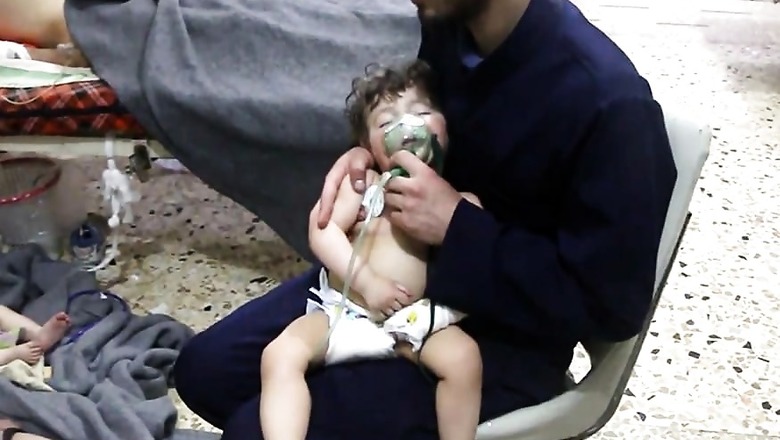
views
Amsterdam: Banned chlorine munitions were likely dropped on a Syrian neighborhood in February, an international body on chemical weapons said on Wednesday, after laboratory tests confirmed the presence of the toxic chemical.
In its latest report on the systematic use of banned munitions in Syria's civil war, the Organisation for the Prohibition of Chemical Weapons (OPCW) did not say which party was behind the attack on Saraqib, which lies in rebel-held territory in the province of Idlib.
But witnesses told OPCW investigators that the munitions were dropped in barrel bombs from a helicopter, a report released by the OPCW showed. Only Syrian government forces are known to have helicopters.
The report by the OPCW's fact finding mission for Syria "determined that chlorine was released from cylinders by mechanical impact in the Al Talil neighbourhood of Saraqib."
About 11 people were treated after the attack on February 4 for mild and moderate symptoms of toxic chemical exposure, including breathing difficulties, vomiting and unconsciousness, the report said.
Samples taken from the soil, canisters and impact sites tested positive for other chemicals, bearing the "markers of the Syrian regime," said Hamish de Bretton-Gordon, a biological and chemical weapons expert working in Syria.
The samples tested positive for precursors needed to make the nerve agent sarin, he said.
"These chemicals were detected in previous sarin attacks, Khan Sheikhoun, East Ghouta and no doubt Douma," Bretton-Gordon said.
The OPCW is also investigating a suspected chemical attack on April 7 in the Douma enclave near Damascus, which prompted missile strikes by the United States, France and Britain. Those findings are expected by the end of the month.
















Comments
0 comment